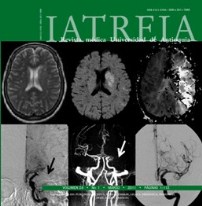Traditional medical systems in the northeastern Amazon region of Colombia: health and alternative knowledge
DOI:
https://doi.org/10.17533/udea.iatreia.8426Keywords:
Ecological Development, Ethnic Group and Health, Health Systems, Medicine, TraditionalAbstract
An ethnographic research was carried out between 1997 and 2003, and during four months in 2008- 2009, on the traditional medical systems of indigenous communities in the Amazonian Colombian departments of Guainía and Vaupés. Puinave, Curripaco, Piapoco, Guahibo, and Tucano groups were included. The work was based on community meetings, targeted groups, conversations with shamans and other leaders, home visits, and participation in traditional festivals. Analysis centered on the social, ecologic, and identity roles played by traditional indigenous medical systems; the latter are related with the maintenance of alternatives to the development discourse. The hegemony/ subordination relationship that prevails between the Western and traditional medical systems ispresented, evidencing how the latter has resignified itself, adapting to the contemporary intercultural context, thus questioning the biologist reductionism of official medicine.
Downloads
Downloads
Published
How to Cite
Issue
Section
License
Papers published in the journal are available for use under the Creative Commons license, specifically Attribution-NonCommercial-ShareAlike 4.0 International.
The papers must be unpublished and sent exclusively to the Journal Iatreia; the author uploading the contribution is required to submit two fully completed formats: article submission and authorship responsibility.














